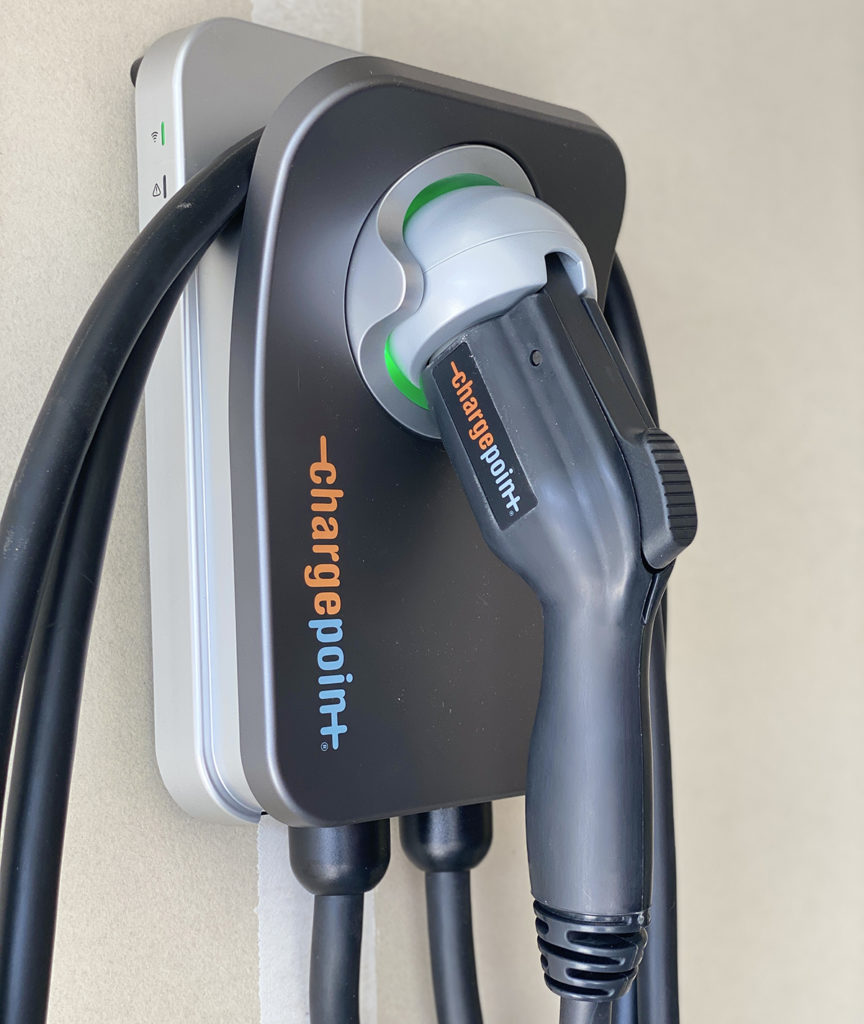
A Colorado electric cooperative has begun offering a monthly electric vehicle charging service to make driving an EV more affordable for its members and enable the co-op to reduce demand for electricity during peak hours.
For $19 a month, members of Brighton-based United Power can enroll in United EV, a pilot program that provides complete equipment and installation of a wall-mounted ChargePoint Home Flex Level 2 home charger that can fuel an EV in as little as two to four hours. The price also covers all maintenance and repairs.
The co-op is also offering rebates of up to $1,000 for installing make-ready wiring and outlets to accommodate the chargers, which require a 240-volt outlet and a 50-amp circuit breaker.
“We want to make the upfront costs cheaper for our members who want to adopt EVs,” said Joel Danforth, energy programs director at the 102,305-meter co-op. “The good news is that once they install the charger, they basically have the equivalent of a gas station in their garage.”
The co-op owns and operates the chargers on behalf of its members, allowing it to collect data on when people are charging and where charging clusters are forming, Danforth said.
“It helps us plan for upgrades to transformers and load growth in the future,” he said.
The data can also be used to help steer EV users to charge their vehicles after 10 p.m., when the peak demand for electricity is over and rates are cheaper, Danforth said. Charging during off-peak hours saves money for both EV users and other members because the co-op pays less for power during off-peak periods. United Power buys wholesale electricity from Tri-State Generation and Transmission Association in Westminster, Colorado.
The five-year pilot program will begin with 50 residential members who have four options for charging their EVs. They can agree to let United Power turn the charger on only after 10 p.m.; throttle the Level 2 charger down to a less power-intensive Level 1 charger between the peak hours of 2 p.m. and 10 p.m.; keep the charger off until after 10 p.m. with the ability to opt out of that requirement temporarily through a smartphone app; or create their own charging schedule with the understanding that peak rates may apply.
The co-op hopes to expand the number of participants beyond 50 during the first year of the pilot program, if the board approves, Danforth said.
“Our goal is to pursue charging as a service that provides flexibility to the grid and to the members in a way that is simple, low-cost and gets our foot in the door on transportation electrification,” he said.
In Colorado, EV adoption has grown rapidly over the past few months because of high prices for gasoline, he said. There are about 6,000 registered EVs in United Power’s service territory, representing about 6% of its residential meters.
“Consumers are voting with their wallets and opting for EVs,” Danforth said. “We want to be an active participant.”
Erin Kelly is a staff writer for NRECA.